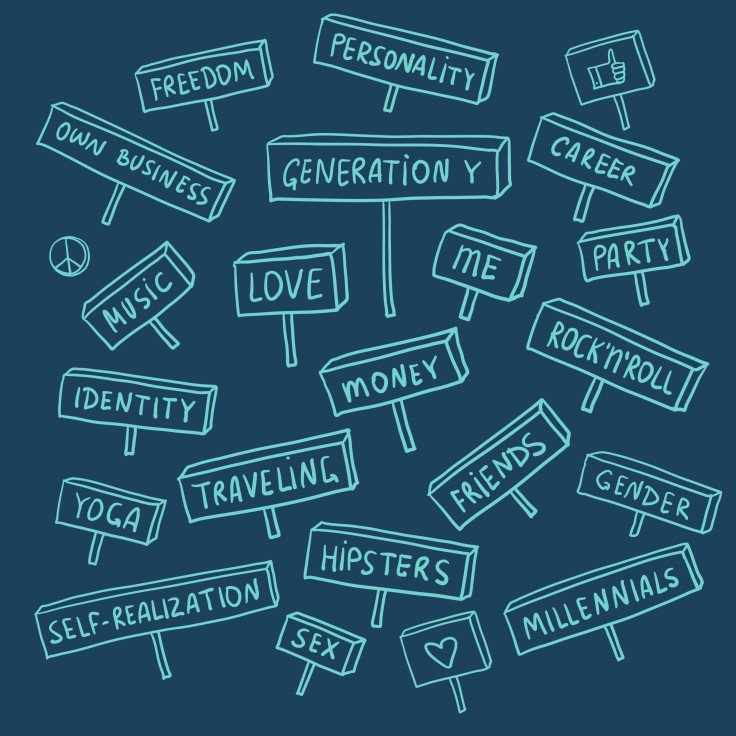Milennials Are The Generation Of Premarital Sex, Even Though They Have Fewer Partners

In news that might frighten stodgy people everywhere, researchers have published a study today in the Archives of Sexual Behavior purporting to show that not only are Americans more likely to be accepting of premarital sex and homosexuality than ever before, but that it’s millennials who are leading the tolerance brigade.
Before anyone’s monocles drop in outrage over the rampant hook-up culture infecting our college campuses, though, the study, somewhat counterintuitively, also found that while the young’uns are increasingly OK with casual sexual relationships, they aren’t necessarily having them with more people. If anything, the average amount of sexual partners among Generation Y has shrunk compared to their parents.
Pulling data from the nationally representative General Social Survey, the authors calculated the tolerance levels of sexual behaviors such as premarital sex, extramarital sex, and same-sex relations from 2000-2012, and compared them to the rates found among previous time periods, as different generations came into adulthood. While affairs have consistently remained taboo throughout the years, the 2000s have ushered in a greater acceptance of these behaviors by all adults, particularly when it came to homosexuality.
Once the authors took a closer look, though, they found a distinct generational gap. “Among the generations, millennials were the most open-minded about premarital sex and homosexual sex. They were the most likely to say these behaviors were ‘not wrong at all,’ even when age was controlled,” lead author Dr. Jean Twenge told Medical Daily. Importantly, millennials were more tolerant of these behaviors than the previous generations were at the same age. Among ages 18 to 29, 62 percent of millennials found nothing wrong with premartial sex, compared with 50 percent of Gen X’ers polled in the 1990s, and 47 percent of Baby Boomers in the 1970s.
Twenge, the author of Generation Me, a 2014 book that examined millennials' mindsets on a variety of issues, further explains that they’ve especially become tolerant of same sex relations, with 56 percent of millennials accepting of homosexuality compared to 26 percent of Gen X’ers asked in the 1990s. These percentages might lower as millennials get older, if historical trends remain steady, but Twenge believes the changes in attitude are stable. "Cultural change affected sexual attitudes and behavior more than age did," she added.
Adults today also report having more sexual partners, and of having met these partners outside of committed relationships more, but again millennials differ significantly from previous eras. Rather than continuing to increase over time, the average amount of sexual partners millennials report has dipped back to Baby Boomer levels. "The generational effects were curvilinear, with the mean number of partners moving from 2.12 for those born in the 1910s to 11.68 for those born in the 1950s, and then declining to 8.26 for those born in the 1980s-1990s," the authors wrote (As often and suspiciously seen when asking this particular question, men reported more partners than women).
These results aren't surprising when you consider the particular sort of values that younger people are upholding today, though. As Twenge told Medical Daily, "They are tolerant, but perhaps more cautious, and fine with making their own choices even if they believe others can behave differently."
Not to be lost in the shuffle was the finding that these changes weren't as prominent among black Americans. Though more accepting than white Americans at the turn of the 20th century, blacks exhibit less tolerant stances toward promiscuity and homosexuality than whites today. "The move toward more restrictive attitudes and behavior may reflect increased awareness of the disproportionate burden of sexually transmitted infections (including HIV) on the black community," the authors hypothesize, also citing research finding that blacks have remained more religious than whites over the generations (Only white and black people were observed during this study).
Taken as a whole, Twenge believes her study provides an important peek into how millenials are looking at the world, compared with previous generations, and she hopes her work can shape our greater understanding of them, stripped away of preconceptions.
"In Generation Me, I find that the most prominent theme of the generational and cultural changes is more individualism," she said, "That can mean more self-focus, but it can also mean more tolerance toward others who are different. Millennials display both."
Source: Twenge J, et al. Archives of Sexual Behavior. 2015.
Published by Medicaldaily.com



























